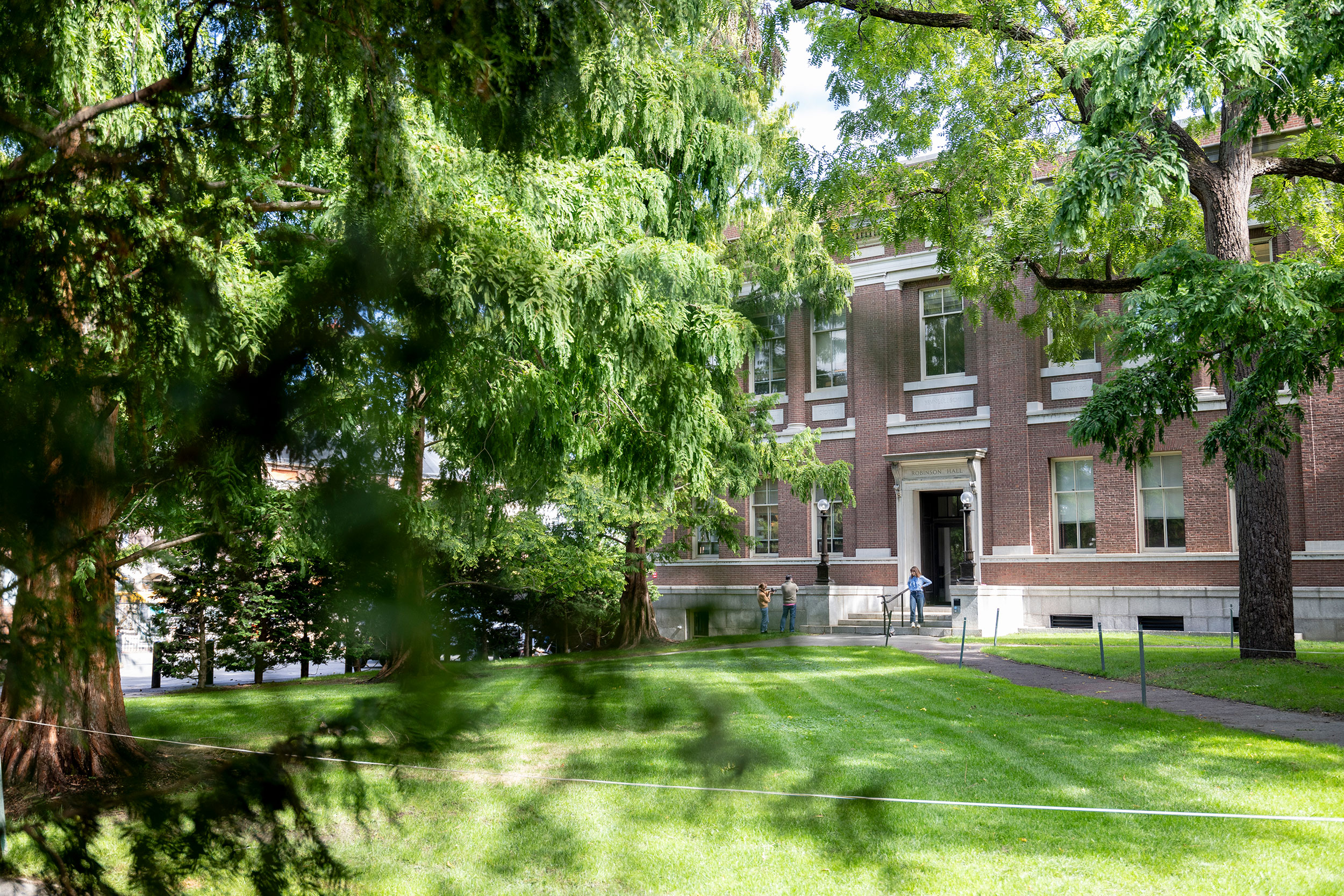At a meeting of the Faculty of Arts and Sciences on Oct. 1, 2024, the following tribute to the life and service of the late Robert Rosenthal was spread upon the permanent records of the Faculty.
Robert Rosenthal, one of the most influential psychologists of the past 60 years, died on Jan. 5, 2024, in Riverside, California. He was 90 years old. Rosenthal conducted landmark social psychology experiments on interpersonal expectancy effects, which showed that people can unwittingly convey how they expect others to behave, thereby subtly inducing them to act in accordance with expectation. Such effects, he found, occur with teachers, supervisors, and psychotherapists with their pupils, employees, and patients. He was also a major contributor to statistical and methodological advances in the behavioral sciences.
Rosenthal was born in Giessen, Germany, on March 2, 1933, and was the son of Hermine (Kahn) and Julius Rosenthal. He spent his early years in the town of Limburg, where his father co-owned a dry goods factory. The factory was seized by the Nazis in 1938, and the Rosenthal family fled to Cologne, seeking to conceal their Jewish identity in the anonymity of the big city. Although they had obtained a quota number enabling them to immigrate to America, someone stole it. Fortunately, Julius Rosenthal’s brothers were living in the British colony of Southern Rhodesia. They helped the family escape to Africa, obtain a visa, and then settle in New York City in 1940.
Julius Rosenthal moved his family from Queens to Los Angeles, where he opened a department store and where Robert Rosenthal finished his final year of high school. Robert Rosenthal then enrolled at the University of California, Los Angeles, where he majored in psychology. He received his B.A. in 1953 while also taking graduate courses in clinical psychology, enabling him to obtain his Ph.D. in 1956. After completing his clinical training, he was appointed Assistant Professor, then Associate Professor, and became the Director of clinical training in the Ph.D. program in clinical psychology at the University of North Dakota, where he taught for five years. He spent the next 37 years at Harvard University, first as a lecturer on clinical psychology and then as a professor of social psychology. He chaired the Department of Psychology (1992–1995) and was appointed Edgar Pierce Professor of Psychology (1995–1999). He retired from Harvard and began working for the University of California, Riverside, in 1999, where he was Distinguished Professor and University Professor until his retirement in 2018.
Although trained as a clinician, Rosenthal’s research soon evolved in the direction of social psychology. In the 1960s, he and Kermit Fode discovered the Experimenter Bias Effect. In one study, he informed student experimenters that one group of rats had been bred to be very proficient at learning to navigate mazes, whereas another group had not. Although both groups were indistinguishable, the “maze-bright” rats outperformed the “maze-dull” ones, apparently because students unintentionally handled them especially well. Rosenthal’s work on the Experimenter Bias Effect encouraged psychologists to conduct their experiments in a double-blind fashion whereby neither the subjects nor the assistants testing them were aware of the hypothesis under test.
Pygmalion in the Classroom was among his most famous experiments, conducted with Lenore Jacobson, an elementary school principal. They told teachers that the (bogus!) Harvard Test of Inflected Acquisition had revealed that certain students, but not others, were about to exhibit a growth spurt in measurable intelligence over the course of the school year. Follow-up intelligence tests indicated that students whose teachers expected intellectual growth did, in fact, exhibit an increase in measured IQ greater than did students whose teachers had no such expectation of them. Apparently, teachers favorably interacted with the students whom they expected to excel, thereby encouraging the very progress supposedly forecast by the test.
Rosenthal also made many contributions to the related field of nonverbal behavior. In 1993 Nalini Ambady and Rosenthal won the American Association for the Advancement of Science’s Prize for Behavioral Science Research for their work on thin slices of behavior. They found that brief — usually less than one minute — slices of audiotaped or videotaped expressive behavior (e.g., manners of speaking, gestures, and facial expressions) enabled raters to make judgments regarding a person’s competence, likability, and other attributes that were as accurate at predicting, for example, a person’s success as a teacher as comprehensive student evaluations. Brief audiotapes of physicians interacting with their patients distinguished those who had been sued versus those who had not.
In parallel with his work in social psychology, Rosenthal published many articles and books on statistics and methodology. Often collaborating with Donald B. Rubin or Ralph L. Rosnow, he was instrumental in developing meta-analysis, a procedure for summarizing the results of many studies. As co-chair of the American Psychological Association’s (APA) Task Force on Statistical Inference, he helped shape guidelines for best practices, such as focused contrast analyses and effect size estimation.
Rosenthal was the recipient of many honors, including the Distinguished Scientist Award from the Society for Experimental Social Psychology (1996), the James McKeen Cattell Fellow Award from the American Psychological Society (2001), and the Samuel J. Messick Award for Distinguished Scientific Contribution from the APA’s Division 5 (Quantitative and Qualitative Methods) (2002). He received an honorary doctorate from the University of Giessen in 2003, 70 years after he was born at the university’s medical center.
Rosenthal’s wife of 59 years, Marylu (Clayton), passed away in 2010. He is survived by his daughters, Virginia (Ginny) Rosenthal Mahasin and Roberta Rosenthal Hawkins; his son, David Clayton Rosenthal; and six grandchildren.
Rosenthal was a wonderful colleague and the beloved mentor of many students. His personal warmth, kindness, and ever-smiling, down-to-earth manner were as memorable as his curiosity, enthusiasm, and brilliance.
Respectfully submitted,
Jill M. Hooley
Ellen J. Langer
Mark F. Lenzenweger (Binghamton University)
Donald B. Rubin
Richard J. McNally, Chair
Source link

